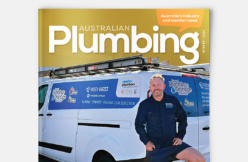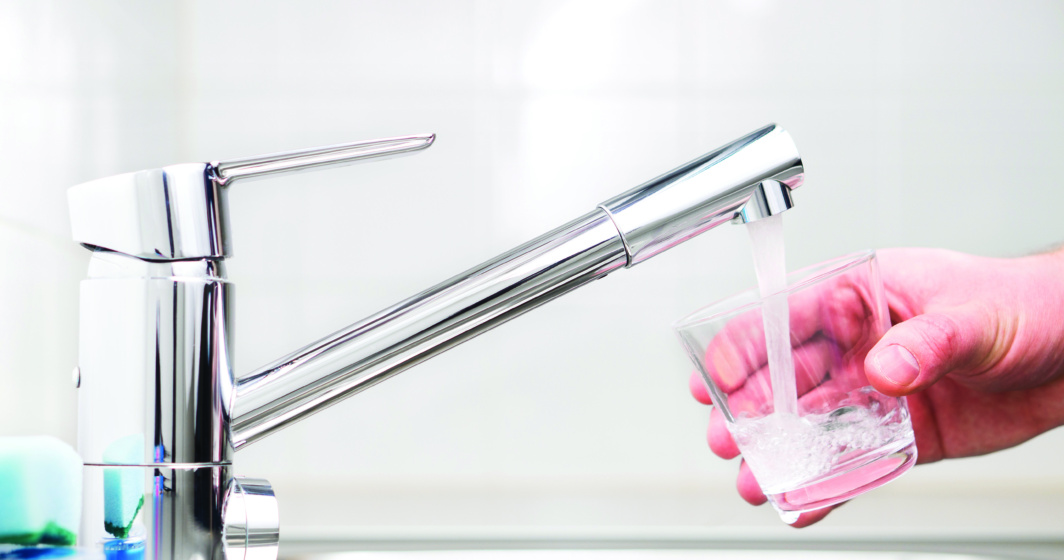Scott Michaels, Group President of the Plumbing Products Industry Group (PPIG), describes the new requirements as the biggest regulatory changes in the Australian plumbing industry.
“Australia is a really complicated market, because things are regulated at state levels but there’s also a lot of products on the market. PPIG was one of the key stakeholders advocating for this change, which is absolutely in line with changing community expectations,” he says.
A high-profile incident where lead was detected in drinking water at the site of the Perth Children’s Hospital in 2016, prior to the building opening, was one of the catalysts for the new national requirements. Children are at particularly high risk of health problems - including damage to the central and peripheral nervous system, learning disabilities and impaired hearing – due to lead exposure.
PPIG is the association of Australian and New Zealand manufacturers and importers of all plumbing product. It has represented the views of manufacturers and importers at an industry roundtable to help everybody in the industry to successfully make the transition.
Support for the change is broad across the sector - with Master Plumbers a strong advocate according to Chief Technical Adviser Gary Bath.
“We’re all about the health and safety of consumers, and if there’s a perception or an ability for lead to leak into the potable water supply, it’s definitely something we want to reduce,” he says.
“America led the charge with reducing the lead content, Europe’s followed and now it’s our turn.”
But with the deadline now less than three years away, Gary says the processes and systems that will result in plumbing products becoming certified and how information will be distributed to plumbers remains unclear.
“Now that the clock is ticking on the timeline, we have seen that the real issue is knowing how a plumber or consumer can walk along at a plumbing-goods supplier and determine what has made the grade and what hasn’t?” he says.
Paul Bonsak, Managing Director of certification body IAPMO Oceana, says the business is working with clients and manufacturers to assess affected products (as determined by the ABCB) to the new requirements as outlined in the Plumbing Code of Australia.
“IAPMO Product Certification Engineers in Australia are very familiar with assessing ongoing compliance to NSF/ANSI/CAN 372 as we have been undertaking Continuous Compliance Lead Free factory inspections on behalf of IAPMO R&T for several years,” he says.
“IAPMO is currently able to assess product data such as technical drawings, bill of materials (BoMs), test reports and factory inspections to ensure that products meet the new ABCB NCC Lead Free requirements.”
Master Plumbers believes the current WaterMark system, which allows plumbers to check if their plumbing and drainage materials and products are WaterMark certified via a comprehensive online database, is a template that could play a role.
“Any product that is going into a drinking water supply has to have a WaterMark, a universal stamp to say this has met the approval process. But when you’re looking at a major change, like tapware reducing the amount of lead in there, that might not be automatically picked up by identifying a WaterMark,” says Gary.
“We have advocated for something a little bit heavier than a WaterMark stamp, something like a lead-free stamp or a stamp that meets the certification. At least in the interim, we’d like to see some additional stamp on the box that this now meets the new lead content requirements, to make it easier for us.” Gary says that more understanding is also required about imported products.
“Because of our geographical position, we import a lot of products. So, it’s keeping a watching brief over what comes in and if they have to have WaterMark or something similar. It’s not clear whether they passed the same sort of rigor that we would – so currently there wouldn’t be the same sort of restrictions overseas as what we would have. In a perfect scenario, they have to jump over the same sort of hurdles that a local manufacturer would.”
Scott Michaels says that while the transition period has been challenging - in part due to COVID-related restrictions around international travel, manufacturing and access to supply chains - a new certification system similar to what Master Plumbers has called for will help plumbers.
“There will be a lead-free WaterMark rolled out to show which products are certified. Once the decision was made to introduce the new requirements, the decision was made to have mandatory markings. The industry is in regular communication through the roundtable that has been established, which has been really effective, to make the transition smooth for everybody.”
IAPMO is also supportive the mandatory marking of products, with Paul Bonsak promising “this will form part of the certification process undertaken by IAPMO.”
Gary says Master Plumbers’ focus remains on ensuring there is a seamless transition process over the next two and a half years. “How we can do that is to make sure the manufacturers are happy and make sure we have a certification process that’s going to be able to be followed,” he says.
“We want clear identification of the products for consumers and plumbers and a long enough transition for manufacturers and everyone else to get their houses in order.”

